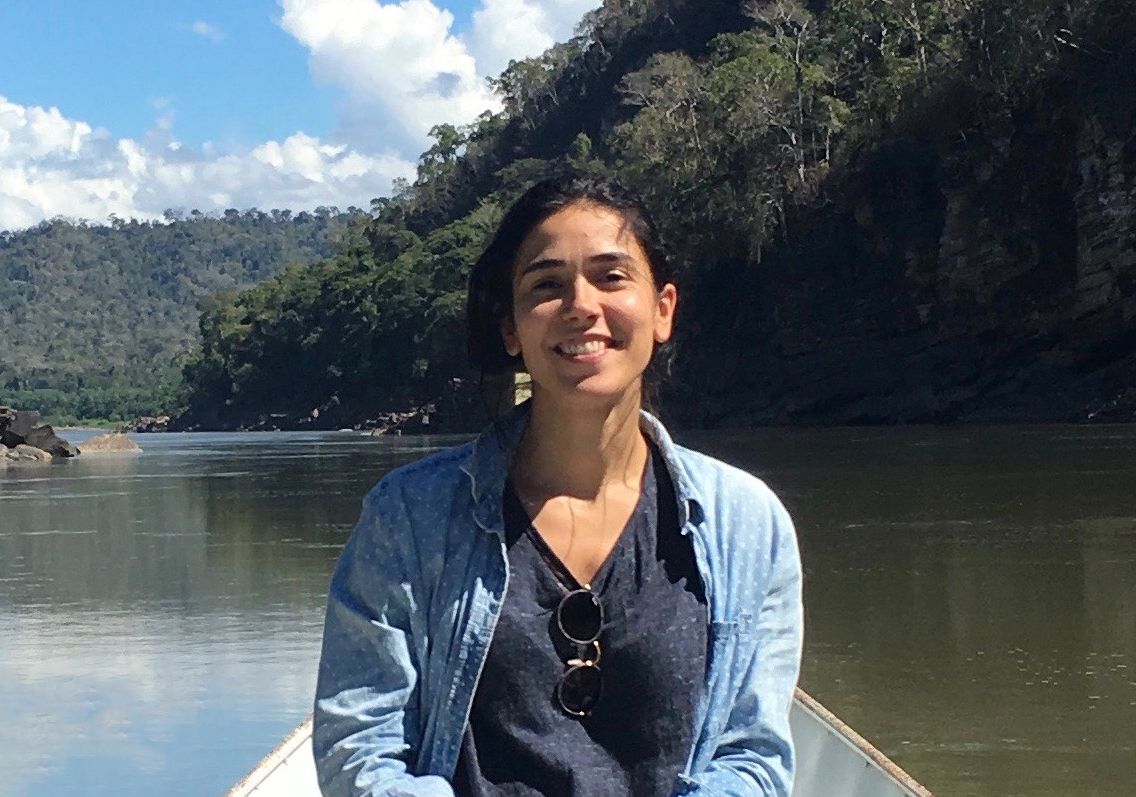
Laura is passionate about innovative business models and cross-sector collaboration for inclusive and sustainable livelihoods that value diversity and nature. She believes in a future that is inclusive, regenerative and circular, where systemic leadership will be fundamental. She is eager to collaborate and put capital to work for people and the planet!
Laura has over ten years of experience in project management and business strategy, and specializes in analyzing and structuring projects that combine a range of financial instruments to support social innovation and environmental impact programs with social entrepreneurs, grassroots organizations and value chains. We asked Laura a few questions about what led her to working in the marine space, and what she's looking forward to at Future of Fish:
Q: How did you find your way into marine issues?
I was born and grew up in Vigo, the biggest fish port in Spain. Despite the fact that the ocean is part of my culture and is one of our local economy drivers, I only realized its global importance during my first international development work experience as a volunteer in 2008 in Ilo, a fishing town in the south of Peru, where the ocean was the major means for socio-economic development and a provider of dignity and food security. Although having the same artisanal origins and similar ocean resources to my hometown, I was blown away by the different level of infrastructure, organization and access to resources for these small businesses from Ilo to truly thrive.
Later, while working in social innovation with the IDB, I realized that there were few marine projects in my area of work, despite all the issues affecting coastal communities. Back then, I was working in financial inclusion and agriculture projects and learned that fisheries were even more complex and riskier to invest than inland projects. Working in small scale fisheries requires a major effort in de-risking investments by growing grassroots organizations' capabilities, connecting market actors—and dots—by adopting traceability technologies and safety practices, or regulating source management. Little by little I got involved and learned a bit more about sustainable coastal development, and I guess my curiosity led me here.
Q: What have been some unexpected hurdles in working with artisanal and small scale fisheries?
Breaking the status quo and changing working cultures is normally the hardest part of any new project. Therefore, all the unexpected hurdles are commonly related to people's openness and willingness to collaborate and to create safe, transparent and trusted workplaces for the greater good. In small scale fisheries, this implies considering a multistakeholder context that requires cross-sector and interdisciplinary interventions, where systems and inclusive leadership are key to overcoming challenges.
Q: Interest in seafood sustainability and traceability has grown in recent years. Why do you think that is?
There are many objectives and uses of digital traceability, but I think that the common one is to settle sustainable practices. Nowadays, we are far from having perfect traceability systems due to lack of data quality and availability, which may mean that small scale fishermen and traditional markets do not see its value yet.
However, digital traceability is growing worldwide and I believe it will benefit everybody: helping science and public bodies to control sources and ecosystems, consumers to access to safety and local seafood, fisherman to follow regulations, monitor their business and access to higher prices, investors to de-risk investments and measure the impact of their capital, retailers and intermediaries to fulfill market and regulation requirements and promote respectful and sustainable consuming practices. Last but not least, seafood fisheries and ecosystems will experiment with the effects of traceability on its own sustainability and regeneration.
Q: Where do you hope global fish production will be in 5 years? 10 years?
To have settled regulation, data availability and traceability, infrastructure and capabilities, and business and investment strategies to talk about sustainable and regenerated global fisheries. Recognized the importance of fish and healthy oceans as part of food security and sustainable socio-economic development of small-scale fishery communities, and also part of an enriched global food culture, that is directly connected to human benefits and environmental impacts.
Q: What were you doing before you joined Future of Fish?
I worked as an independent consultant for the last two and a half years in the areas of social innovation and impact investing. I came back to my home country after 7 years working abroad, and started as a freelancer to explore the impact investment scene in Spain and Europe while keeping my work in social entrepreneurship in Latin America. During these years, I had the chance to collaborate with great people and institutions interested in promoting impact investment or developing blue economy and natural capital strategies.
Q: What most attracted you to working with Future of Fish?
I am mainly interested in field implementation of the Fisheries Development Model, specifically in its strong ethnographic analysis and community’s participatory approach. Overall, I am attracted and want to learn about the systems change vision of Future of Fish that develops multistakeholder and cross-sector models, while focusing on shared value strategies to create innovative business models and considering financial innovation as part of the solution.
Q: What are you most looking forward to doing in the next year?
Keep working in impact investing and the blended finance scene, but focusing to support and scale innovative business and community models for sustainable fisheries, and helping to create positive impact for small scale fishery communities.



